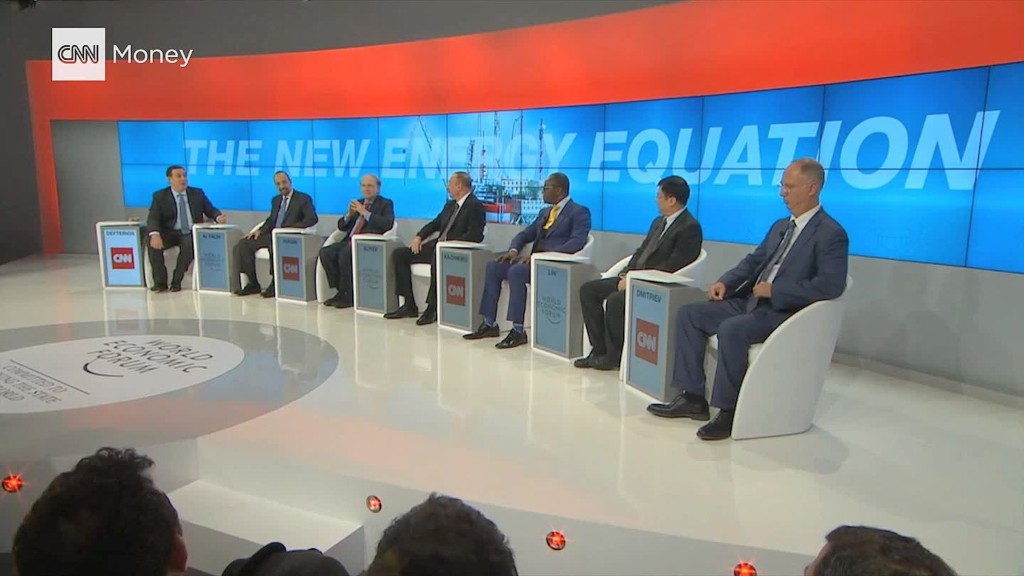
If you are waiting for Saudi Arabia to save the oil market, don't hold your breath.
The country will not cut production and give up its market share in order to prop up prices, the chairman of Saudi Aramco said at the World Economic Forum in Davos
"We are not going to accept to withdraw our production to make space for others," Khalid al-Falih said at a panel hosted by CNN's emerging markets editor John Defterios.
Saudi Arabia is the world's second biggest oil producer and the top crude exporter. "This is the position that we've earned...we are not going to leave that position to others," al-Falih said.
He said Saudi Arabia has in the past played the role of a "reserve bank" in the oil market, smoothing short terms shocks. The country has acted during the financial crisis and during civil unrest and wars in oil producing regions that have disrupted supplies.
But it will not step in to fix the hugely oversupplied market.
"Saudi Arabia has never advocated that it would take the sole role of balancing market against structural imbalance," he said at the CNN panel.
Related: John Defterios: Saudi Arabia's oil strategy tears OPEC apart
"If there are short term adjustments that need to be made and if other producers are willing to collaborate, Saudi Arabia will also be willing to collaborate," he said.
Oil prices have crashed to $27 per barrel from well over $100 in just 18 months. Saudi Arabia has paid a heavy price for the slump. The government announced an array of austerity measures as its oil revenues collapsed, and even hiked the price of gasoline by 50%.
But the country keeps pumping robustly in order to protect its market share. It has faced increasing competition, first from the U.S. shale industry, and most recently from Iran which is gearing up towards a big return to global oil markets now that economic sanctions have been lifted.
"If the prices continue to be low, we will able to withstand it for a long long time...obviously we hope it will not happen," he said.
He said the current prices are "unreasonable," but are probably not likely to climb much any time soon. "Short term, it's very bleak picture," he said.
-- CNN's David Brandt contributed to this article.


